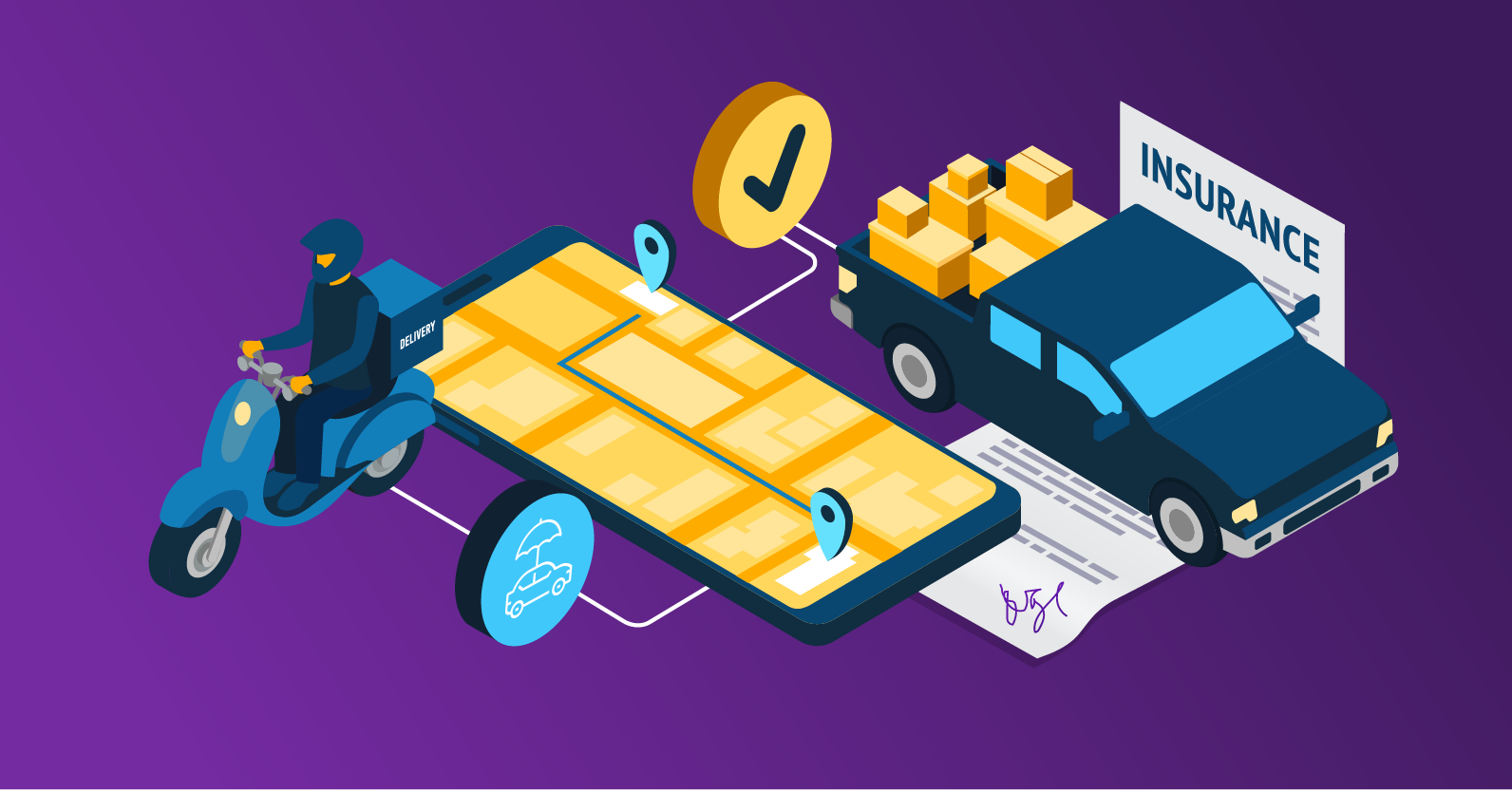Contents
- The broad landscape of uninsured drivers
- Why gig companies need to verify auto insurance
- Reducing risk by verifying auto insurance
- It all comes down to automating auto insurance verification
In this blog, learn about:
- The reason behind the prevalence of uninsured drivers
- The types of insurance required for drivers to keep businesses in the clear
- The benefits of and how to use automated auto insurance verification for risk mitigation
Businesses heavily rely on a network of independent contractors to provide essential transportation and delivery services. However, a crucial aspect often overlooked in this ecosystem is the verification of auto insurance for these drivers. Despite legal mandates requiring drivers to have adequate insurance coverage, the prevalence of uninsured motorists remains a significant concern in the United States. This poses not only financial risks to individuals but also presents substantial liabilities for gig companies operating in this space. Here’s why you need to verify your driver’s auto insurance to ensure safety and compliance on the roads.
The broad landscape of uninsured drivers
In the United States, many drivers lack proper auto insurance despite laws requiring it. Approximately 14% of drivers nationwide are uninsured. States with higher rates of poverty or unemployment tend to experience elevated levels of uninsured driving, as individuals struggle to afford insurance premiums amidst economic hardship. Additionally, states with larger urban centers or higher population densities may face greater challenges in enforcing insurance requirements due to logistical constraints and resource limitations. The rates of uninsured drivers also mirror larger socio-economic trends and policy changes within different regions. Factors such as variations in job availability, shifts in insurance regulations, and changes in demographics all contribute to fluctuations in the prevalence of uninsured drivers over time.
This prevalence of uninsured drivers not only poses financial risks to themselves but also imposes substantial costs on insured drivers, insurers, and society at large. From property damage and medical expenses to legal fees and administrative burdens, the consequences of uninsured driving are vast. Unfortunately,
Why gig companies need to verify auto insurance
Gig companies, particularly those involved in last-mile delivery or rideshare services, depend heavily on drivers to deliver essential services. However, the nature of gig work often entails using personal vehicles for business purposes, which may not be adequately covered by standard personal insurance policies. For example, a delivery driver transporting goods or a rideshare driver ferrying passengers is engaging in commercial activities that may not be covered by their personal auto insurance policy. This discrepancy creates a substantial risk for gig companies, as any accident involving a driver without sufficient coverage could lead to legal entanglements and financial losses.
Reducing risk by verifying auto insurance
To address this risk, gig companies typically require their drivers to have specialized commercial auto insurance or additional coverage options tailored to their specific work activities. Commercial auto insurance provides coverage for vehicles used for business purposes, ensuring protection against liabilities arising from accidents while on the job. For example:
- Rideshare insurance: Gig companies may mandate that drivers obtain rideshare insurance, a specialized type of coverage designed to bridge the gap between personal and commercial insurance for rideshare drivers. This type of insurance typically extends coverage to periods when the driver is logged into the app but has not yet accepted a ride request, ensuring continuous protection throughout their working hours.
- Cargo insurance: Delivery drivers working for gig companies may need to secure cargo insurance to protect against damages or losses to the goods they are transporting. Cargo insurance provides coverage for the value of the goods being delivered, shielding both the driver and the company from financial losses in the event of theft, damage, or accidents during transit.
By requiring drivers to maintain appropriate insurance coverage tailored to their specific work activities, gig companies can mitigate the risks associated with uninsured or underinsured drivers. By ensuring that drivers have the necessary insurance coverage to protect themselves and others on the road, gig companies can uphold safety standards, minimize financial liabilities, and maintain the trust of their customers.
It all comes down to automating auto insurance verification
When it comes to verifying auto insurance for your gig driver’s, skip the manual verification and automate your processes. Gig companies can implement auto insurance verification via onboarding to verify and re-verify the auto insurance of their drivers. For businesses that engage gig workers for last-mile delivery, ride-share, or food delivery services, this automation plays a crucial role in accessing 100% accurate insurance data, ensuring compliance with regulations.
Fortunately, with MeasureOne, verifying auto insurance data is quick, easy, and can be integrated directly into your current flow. Automating the verification process with MeasureOne offers numerous benefits for both your business and gig workers, such as:
- Streamlined employee onboarding: Seamlessly integrate verification via API into your onboarding process to instantly collect and verify auto insurance information for prospective gig drivers.
- Re-verification of auto insurance: Utilize scheduled, automated API queries and notifications to regularly check the status of employees' insurance coverage. Stay updated and take immediate action if coverage lapses or changes occur.
- Fraud mitigation and risk reduction: Analyze historical data and detect patterns indicative of insurance fraud using automated primary source data, helping to mitigate fraud risks and reduce overall risk exposure.
Try it for free for 14 days.

